- Home
- JoAnn Ross
Impulse Page 3
Impulse Read online
Page 3
Christ on a crutch, he’d nearly shit a brick when he’d walked onto the plane this morning and discovered he’d be handing over control of his life to a friggin’ female.
That’s when he should’ve folded his hand. But, reminding himself he was on a mission, he’d strapped himself into the seat of the flying tin can, which, a chatty elderly woman behind him informed her seat-mate, was colloquially referred to as the Vomit Comet.
His own seatmate had been a Russian bear of a guy who was definitely taking up more than his share of space. The good news was that he proved no more interested in conversation than Sal himself was, choosing instead to spend the flight muttering curses when he wasn’t taking hits from a silver flask he’d managed to sneak onto the plane in a red, white, and blue backpack.
As the turboprop jet bucked and dove over the Rockies, causing him to nearly lose the Egg McMuffin he’d wolfed down at Las Vegas’ McCarran Airport, Sal discovered the flight was appropriately named.
By the time he’d managed to make it down the metal steps to the snow-dusted ground on rubbery legs, he’d seriously considered hitting his knees and kissing the tarmac.
It was all the damn woman’s fault. If it weren’t for her, he wouldn’t be going through all this freaking shit.
As he marched to the SUV parked outside the Red Wolf ski lodge, head hammering and stomach still churning as if he were coming off a two-week bender, Sal decided that if he could get the job done tonight, he could be on the first plane out of here in the morning. Back to the warmth and civilization of Vegas. Where he belonged.
5
It had only taken ten minutes, after all. And he’d fallen asleep right after he’d come. Erin thought about waking him, then decided that perhaps it would be better—easier—if he just woke up on his own and left the apartment while she was out at the lake. That way she could avoid any uncomfortable after-sex conversation until she had time to sort out her feelings about him. And about what they’d shared earlier.
As she drove past the bank—with its temperature sign announcing a minus ten degrees—and packed snow crunching beneath the tires of her six-month-old Subaru Legacy, Erin admitted that he probably wouldn’t be the only one to call her crazy for coming out tonight.
She heard the distant whine of a snowmobile, glanced in the mirror, and viewed a black sled speeding across the snow, the driver probably practicing the trails for this week’s Ride the Continental Divide sled race.
See, she wasn’t the only one taking advantage of this still, moonlit night.
Before she’d escaped to Wyoming, skating had been a chore, a duty to be endured. It had, over the past months, become a joy again.
No. Not a joy. Something larger. Something almost… religious. Like a benediction.
Liking the sound of that, she parked beside the lake, then carried her white figure skates to a wide, flat boulder on the bank. She brushed the snow off with a white- gloved hand and sat down to lace up the skates.
Erin could not remember a life before skating. Her mother, a national-champion skater injured before the Sarajevo Olympics, had been forced to watch from a hospital bed as East Germany’s Katarina Witt took home the gold medal.
Forced into retirement at the ripe old age of sixteen, Susan began planning the future. Not her own, which had shattered along with her knee when she’d landed that double axel so disastrously, but that of the child she intended to have. The child she’d groom into a champion.
Which was how Erin had ended up on double-bladed strap-on skates, being pulled around the rink by her mother before she could walk.
By five years old, she was taking lessons six days a week. Skating all seven. Perhaps God may have taken a day off to rest, but God hadn’t had a mother determined to win Olympic gold.
She’d won her first competition a week before her seventh birthday and, at age ten, training twenty hours a week, became the youngest girl ever to compete in the senior ladies’ level at the U.S. Nationals. That was the year her parents got divorced and her mother took her to Park City, Utah, to be trained by a former Russian figures coach at a skating center he’d established in the Rockies.
It was at thirteen when her fear of food set in as she struggled with the failure to control her body. A failure she carried in her budding breasts, the faintest curving of thigh.
By sixteen, her periods stopped, she’d given up her virginity to her coach, begun living on laxatives, and discovered she could ease the never-ending stress, just a bit, by cutting her arms with razor blades.
Blinded by their own agendas, both her coach—who had, by then, begun using sex to control her, dishing it out as a reward for a good practice and withholding it as punishment for a less than stellar performance—and her mother, who had visions of high-paying commercial endorsements dancing in her head, refused to see that the teenager who’d never known a childhood was racing full tilt toward burnout.
It was on the eve of the World finals, after a disastrous practice, when all the medals, newspaper clippings, and national rankings couldn’t overcome Erin’s own certainty that she’d never be able to live up to what so many people expected of her. That was the night she took a pair of scissors her trainer used to cut athletic tape and stabbed herself in her wrist’s vein.
Later, in the ER, Susan Gallagher demanded the doctor clear her daughter to skate the next morning.
Reading the shock and distaste on the doctor’s face, at that moment Erin realized that if she really wanted a life—and she did—she’d have to create one on her own.
She walked out of the hospital, packed her bag, leaving all her beaded and spangled designer costumes behind, and never looked back.
She wasn’t quite sure what she was going to do, but she tackled this new challenge the same way she’d always approached her skating: by putting her entire heart and all her energy into it.
And it was paying off. Unlike the other girls who weighed themselves constantly, vigilant about falling prey to the dreaded “Freshman Fifteen,” Erin not only accepted, she welcomed, every new ounce. Especially when she realized that her new curves attracted boys.
And speaking of boys…
She felt, rather than saw, his gaze. So, he’d come, after all. It was odd that she hadn’t heard his truck. And it wasn’t in the lot. He must have parked it back in the trees, wanting to surprise her.
She stood up, as comfortable on the slender steel blades as a girl who’d grown up on a tropical island would be barefoot.
The air was so dry and so cold, Erin could practically feel the ice crystals forming in her lungs.
Okay. If he wanted to watch from the shadows, she’d give him the show of his life.
“Then we can go back to bed and spend the rest of the night warming each other up again.”
The memory of his hands roving over her body, his mouth swallowing her cries as she took him deep inside her, matching him power for power, sent streams of heat curling through her.
Maybe he’d become her boyfriend. She’d never had one before. Not really. Since her coach had been the closest thing she’d had to a father in years, going to bed with him had always felt like incest.
Unfortunately, the other boys she’d slept with— skaters, skiers, and once, the guy who operated the Zamboni, had always made her feel cheap. And ashamed.
And more alone than she’d been before she’d taken off her clothes.
But this time had felt different.
Because he was different.
Maybe, she considered with a smile as she stroked onto the frozen lake, the gliding movement as natural to her as walking, he really was boyfriend material.
The sound of the concave blades cutting into the ice was carried forever in the midnight chilled air as she picked up speed, crossing and uncrossing her feet, speeding through the turns, faster and faster.
She began her impromptu program with a triple-lutz, double-toe-loop combination, followed by a flying camel, arms outstretched like wings, her heart so light
she wouldn’t have been at all surprised if she suddenly became airborne.
With “Now We Are Free” from the Gladiator sound track soaring in her mind, clad in a snowy parka and matching ski pants, bathed in a spotlight of silvery moondust and the diffused red, green, and blue glow from the northern lights shimmering overhead, she flowed across the ice, flying through a series of double axels, a solid triple, a layback spin, finally finishing up with what had become known as “Erin’s spiral.”
The spiral consisted of a dizzying number of change-of-edge spins, not so different from a thousand other skater’s spirals. What made the movement special was how her slender arms unfurled like a blossoming flower, the way she’d look up at her hands, her fingers fluttering, totally lost in what an ESPN commentator had first described as an otherworldly reverie.
The music in her head came to an end. For a long, frozen moment there was only the hushed sound of silence.
Erin knew she’d never skated so well. Never had she felt so free.
With exhilaration singing its pure sweet song in every cell of her body, she skated toward the copse of trees, where she’d sensed him standing.
“Okay,” she said. “You can come out now.”
There was no answer.
“Baby?” She narrowed her eyes, trying to see through the shadowed woods. “Where are you?”
Again, nothing.
Confused, she scanned the lake bank.
Touched by a growing sense of unease, she shivered, but not from the cold.
Ice cracked behind her.
She’d just started to spin around, to yell at him for practically scaring her to death, when a knife flashed evilly in the moonlight.
Before she could open her mouth to scream, the shiny blade slashed deep and wide.
A crimson river flowed from her throat, obscene against the snowy white of her fur-trimmed parka.
Eighteen-year-old Erin Gallagher never saw her attacker. She was dead before she crumpled to the ice.
Standing over her, the man who was once the boy raised by wolves tilted his head back and howled up at the huge, silver-dollar moon.
6
Seventeen hundred miles feom the Savannah waterfront where he’d been shot three months earlier, Will was dragged from the nightmare, drenched in sweat, his out-of-control heart pounding so fast and so hard it could have been about to go into cardiac arrest.
The first time he’d felt this way, although he’d growled like a wounded grizzly, Gray had rushed him to Memorial Health University Medical Center, where an ER doctor who didn’t look old enough to legally drive had stopped the wild heartbeat by massaging his carotid artery while a sadistic nurse slapped a wet towel onto his face.
"Have you experienced any stress lately?” the doctor had asked.
“Who hasn’t these days?” he’d muttered from beneath the icy cloth. Working undercover Vice wasn’t for sissies. Especially after you’d been dragged back from the jaws of death right here in MHUMC’s trauma unit.
"Well, from your symptoms, and your positive response to treatment, my best guess would be you’ve got paroxysmal atrial tachycardia.”
Will had ripped the rag away before he lost his nose to frostbite. “Any chance you could try saying that in English, Doc?”
“In layman’s terms, the stress you’ve been under is causing your brain to send glitched electrical impulses to your heart. Which in turn, created an overload, which, in turn, caused it to lose its natural rhythm.” His encouraging smile was faked, as if he were auditioning for a role on ER. “It’s really not that uncommon. And certainly not fatal.”
He’d scribbled something onto Will’s chart and handed it to the nurse. “I’m going to order an EEG, just in case. And I suggest you learn to be a little easier on yourself. Maybe take up yoga. Or meditation.”
That’d be the day.
The wind, which had been battering the town ever since he’d arrived six weeks ago, had stopped. Moonlight was slipping between the slats of the blinds as he went into the kitchen, dumped a handful of ice cubes into a mixing bowl, and filled it nearly to the brim with water.
He took a deep breath.
Shut his eyes.
Then stuck his face into the bowl.
The icy water slammed into his system, instantly resetting his glitchy heart’s rhythm. It might not be the most enjoyable way to start his day. But it was a helluva lot preferable to twisting his body into yoga pretzels.
Cursing himself for not being able to fight off the anxiety that had caused him to walk away from a job he’d loved and had been good at, and knowing from past experience that there’d be no more sleep tonight, he turned on the kitchen radio and spooned some Folgers (another thing that Doogie Howser clone had warned against) into the Mr. Coffee.
“Can you believe this night?” the all-too-familiar voice on the radio asked. “I’ve been here a year and this is probably only the third time the wind’s stopped. Who knew Wyoming could be so silent?”
Who knew that the woman he’d shared those kisses with atop the Ferris wheel three years ago would show up in Hazard, Wyoming, of all places.
What the hell were the odds?
But, like Han Solo had said in The Empire Strikes Back, “Never tell me the odds!”
The woman currently calling herself Faith Prescott had the perfect voice for nighttime radio—dark and smooth, like rich cream over warm cognac. It slipped beneath your skin on lonely winter nights, encouraging hot midnight memories of her in his bed, those sultry, dulcet tones talking dirty in his ear.
“It’s the kind of night you don’t want to be alone.” Her husky purr echoed his own thoughts.
Although she’d been in town a year, she continued to dominate breakfast conversation among ranchers who’d congregate every morning to clog their arteries with cholesterol-drenched eggs, hash browns, and country smoked ham and down gallons of coffee.
According to the scuttlebutt, the fact that she hadn’t taken up with any of the locals had the members of the breakfast club wondering if she might be a lesbian.
Which would be, all agreed, if it was true, a crying shame.
She may not have given any of the males in town a tumble, but Will knew, firsthand, that Faith was no lesbian.
Despite Hazard’s being a one stoplight town, so far they’d managed to avoid each other since he’d returned. Which was just as well, given that his life, which had always been exactly how he liked it before that damn shooting, had become impossibly complicated. He had no time for a woman with tiger eyes and a sinfully alluring mouth.
But that didn’t stop him from fantasizing lying with her on that bearskin rug at the Red Wolf Lodge.
The night-chilled air thickened with the scent of musk. In his fantasy, they were both naked, her fragrant body gleaming in the flickering orange glow from a fireplace large enough to stand in.
He’d just run his fingertips up the silken skin of her inner thigh and was planning to follow the path with his tongue, when the wall phone had the image shattering like splintered ice.
He scooped it up. “Yeah?” His unusually harsh voice was roughened with pent-up sexual need.
“Sheriff?”
Inner alarms began blaring. “What’s happened?”
Sam Charbonneaux, Hazard’s chief deputy, was one of the most capable cops Will had ever worked with. He never would’ve risked waking his boss up in the middle of the night for anything minor.
“It’s bad, Sheriff.” The deputy’s voice sounded clogged. “Real bad.” There was the sound of a ragged intake of breath. “It’s that skater.”
“Skater?”
“You know, the kid from those soup commercials. Erin Gallagher.” He paused to drag in another deep breath. “She’s dead.”
Damn. Erin Gallagher had been America’s best hope for a gold medal in this year’s Winter Olympics before she’d turned her back and walked away from figure skating. While Will wasn’t up on celebrity news, Josh subscribed to Sports Illustrated and he
remembered the teenage skater appearing on the cover.
He was vaguely aware that she’d moved to Hazard in September to attend college, but since she hadn’t gotten into any trouble, their paths hadn’t crossed.
Until now.
After a brief conversation, he determined that Sam wasn’t exaggerating. Instructing the deputy to secure the crime scene, Will hung up and immediately called the coroner, who sounded less than thrilled at getting dragged out of bed in the middle of a freezing winter’s night.
After pouring the now brewed coffee into a stainless steel thermos, Will trudged back to the bedroom to throw on some clothes. Five minutes later, he’d written a note, letting his father—with whom he’d moved in with after returning to Wyoming—know that he’d been called out and had no idea when he’d be back.
He was at the door of the mudroom, about to head out to Silver Lake, when he turned back. After all that had happened, he didn’t want to leave without saying good-bye to Josh. Because you just never knew when you might not be coming back.
The room was typical teenage messy, clothes thrown over the chair, strewn over the floor; skis, a Christmas gift still unused, propped up against the wall; a set of dumbbells beneath the window; a can of Coke sitting abandoned on the night table.
The screen saver on the laptop computer showed a sun-drenched beach fringed by palm trees; Will knew his sixteen-year-old son missed the freedom of his former unsupervised days in L.A., resented all the changes in his life since his mother’s death, one of which was being handed over to a cop father who had a shitload of problems of his own.
Josh was also not adjusting well to life in this isolated high-range town where the wind blew nearly nonstop, snow stayed on the ground from October to June, and nothing much ever happened.
Remembering his own rocky teenage years, which, if it hadn’t been for his father’s influence, would’ve landed him in juvie more than once, and feeling a surge of fatherly fondness for this son he’d never known existed until that attorney had shown up in his hospital room in Savannah, Will stepped over the flotsam of teenage life to the side of his son’s bed.

 Magnolia Moon
Magnolia Moon Summer on Mirror Lake
Summer on Mirror Lake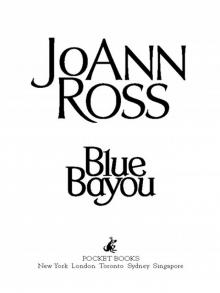 Blue Bayou
Blue Bayou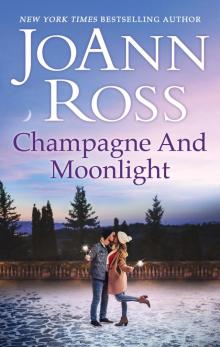 Champagne and Moonlight
Champagne and Moonlight No Regrets
No Regrets Long Road Home
Long Road Home Southern Comforts
Southern Comforts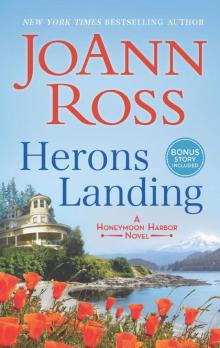 Herons Landing
Herons Landing Untamed
Untamed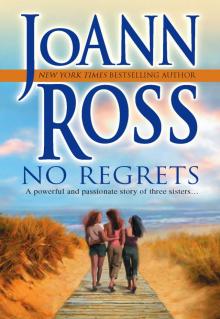 No Regrets (Mira Romance)
No Regrets (Mira Romance)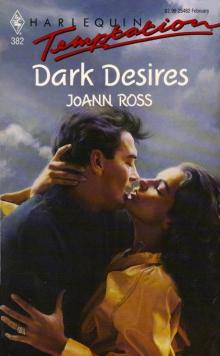 Dark Desires
Dark Desires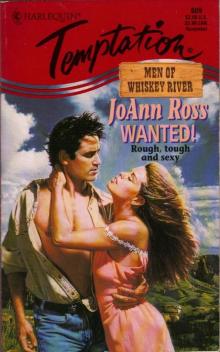 Wanted!
Wanted! River Road
River Road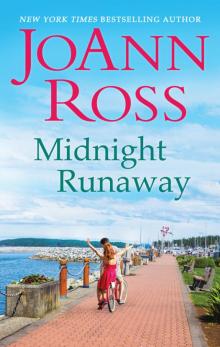 Midnight Runaway
Midnight Runaway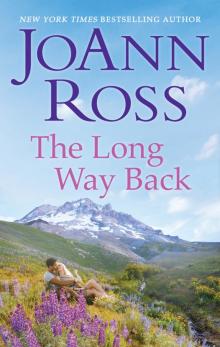 The Long Way Back
The Long Way Back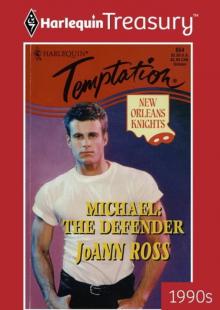 Michael: The Defender
Michael: The Defender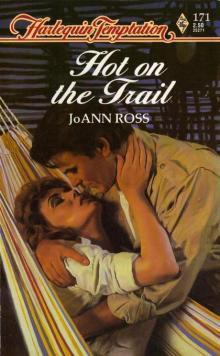 Hot on the Trail
Hot on the Trail When I'm With You
When I'm With You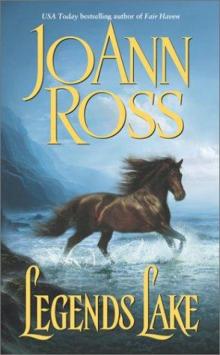 Legends Lake
Legends Lake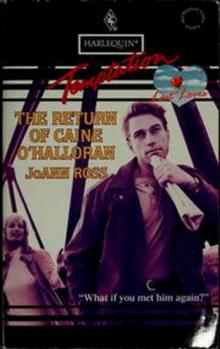 The Return of Caine O'Halloran
The Return of Caine O'Halloran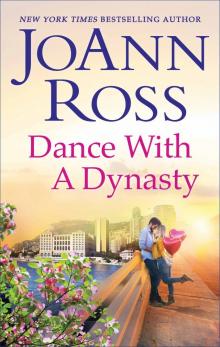 Dance with a Dynasty
Dance with a Dynasty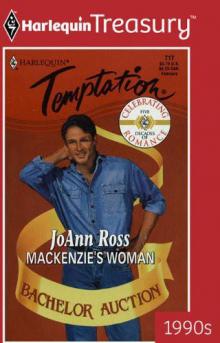 MacKenzie's Woman
MacKenzie's Woman Impulse
Impulse Sunset Point: A Shelter Bay Novel
Sunset Point: A Shelter Bay Novel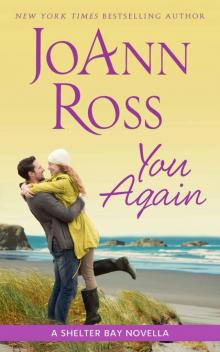 You Again: A Shelter Bay novella (Shelter Bay series Book 8)
You Again: A Shelter Bay novella (Shelter Bay series Book 8)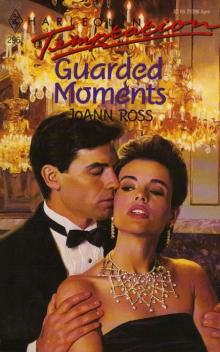 Guarded Moments
Guarded Moments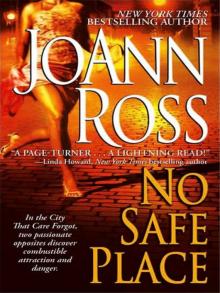 No Safe Place
No Safe Place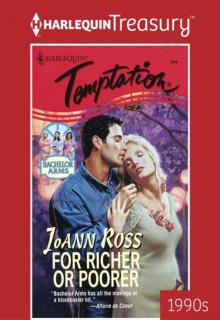 For Richer or Poorer
For Richer or Poorer Private Passions
Private Passions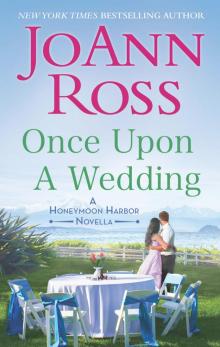 Once Upon a Wedding
Once Upon a Wedding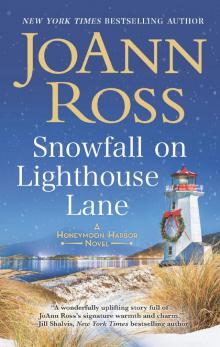 Snowfall on Lighthouse Lane
Snowfall on Lighthouse Lane Christmas on Main Street
Christmas on Main Street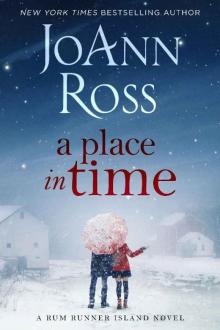 A Place in Time (Rum Runner Island Book 1)
A Place in Time (Rum Runner Island Book 1) Leaving Blue Bayou
Leaving Blue Bayou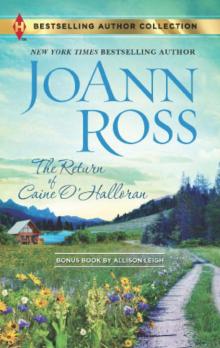 The Return of Caine O'Halloran: Hard Choices
The Return of Caine O'Halloran: Hard Choices Lucky in Love
Lucky in Love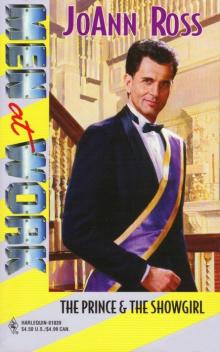 The Prince & The Showgirl
The Prince & The Showgirl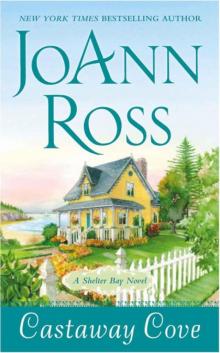 Castaway Cove
Castaway Cove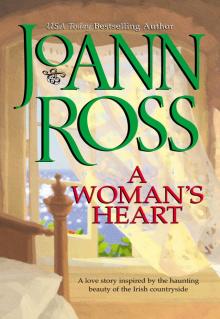 A Woman's Heart
A Woman's Heart One Summer
One Summer Ambushed
Ambushed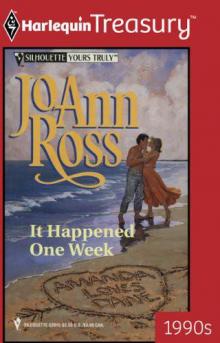 It Happened One Week
It Happened One Week Home by the Sea
Home by the Sea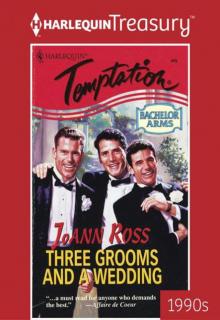 Three Grooms and a Wedding
Three Grooms and a Wedding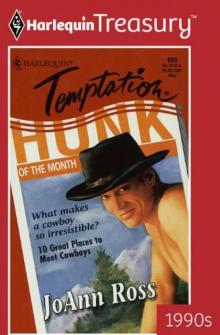 Hunk of the Month
Hunk of the Month Never a Bride
Never a Bride Sun Kissed
Sun Kissed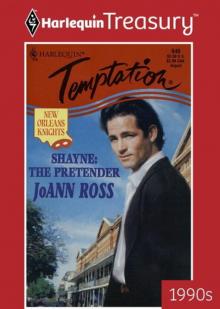 Shayne: The Pretender
Shayne: The Pretender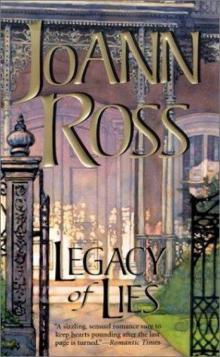 Legacy of Lies
Legacy of Lies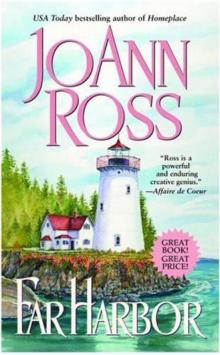 Far Harbor
Far Harbor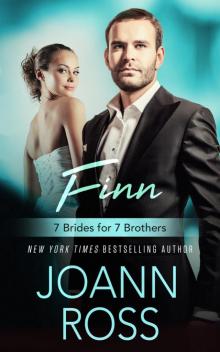 Finn
Finn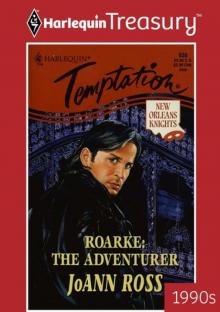 Roarke: The Adventurer
Roarke: The Adventurer I Do, I Do...For Now (Harlequin Love and Laugher)
I Do, I Do...For Now (Harlequin Love and Laugher) Briarwood Cottage
Briarwood Cottage On Lavender Lane
On Lavender Lane Sea Glass Winter
Sea Glass Winter River's Bend
River's Bend Christmas in Shelter Bay
Christmas in Shelter Bay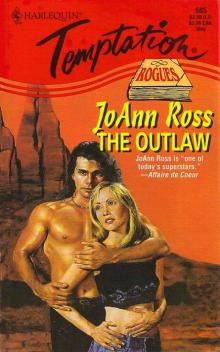 The Outlaw
The Outlaw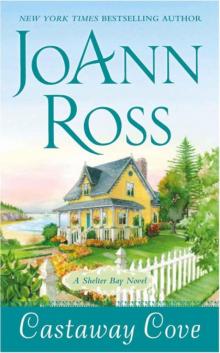 Castaway Cove (2013)
Castaway Cove (2013)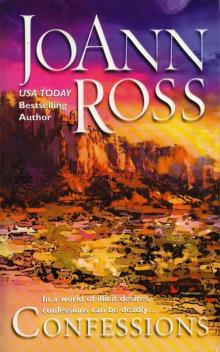 Confessions
Confessions Moonshell Beach: A Shelter Bay Novel
Moonshell Beach: A Shelter Bay Novel